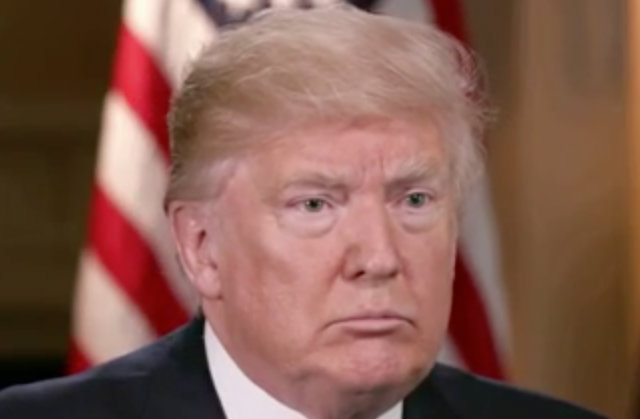
“Basically, he said, ‘Well, I guess he knew what he signed up for. But I guess it still hurt.’ That’s what he said,” Wilson said.
Trump, meanwhile, is denying saying anything of the sort, and tweeted on Wednesday that he has proof.
Of course, this raises the question of what kind of proof is he talking about? Did Trump record his conversation with Mrs. Johnson? If he did, he may have broken the law.
Johnson was in Florida at the time of the call, and the state has what’s known as a two-party consent law when it comes to recording phone conversations. That means that if a phone conversation is recorded in Florida, both sides of the call must agree to it.
Now, in situations where each party is in different states, it can be a little trickier. It’s unclear where Trump made the call from, but assuming he was in Washington, D.C., he could potentially be covered by their law, which only requires one party to consent, and that party can be the one doing the recording. Federal law also has a one-party rule. Deciding which law to apply when the parties are in different states can depend on the situation, but Florida courts have been fairly broad in applying their state’s law.
The 2004 Florida decision in Cohen Brothers LLC v. ME Corp., S.A. indicates that a person can bring a claim under the state’s Wiretap Statute if “the persons bringing suit must be Florida residents or the improper ‘interception’ must have occurred in Florida.” As Johnson is a Florida resident, she would be able to bring a claim against Trump if he recorded their conversation. Even if she’s not a Florida resident, she’d still likely have a claim, since Florida courts define the location of an ‘interception’ as the place where an utterance was made. While Trump may have been outside the state of Florida when he spoke to Johnson, if he recorded the conversation, that means he would have recorded her side as well. Since she was in Florida at the time, this would be a violation of the statute.
In addition to any civil claim, violating the Florida wiretapping law is a crime. If it’s a first offense and the recording wasn’t done for an illegal purpose, someone in violation of the law could get off with a misdemeanor. Otherwise, it can result in a felony charge.
We’ll see if President Trump ends up producing this proof, or if it will end up like the recording of his conversation with former FBI Director James Comey that Trump once teased, only to later say never existed.
[Image via NBC screengrab]